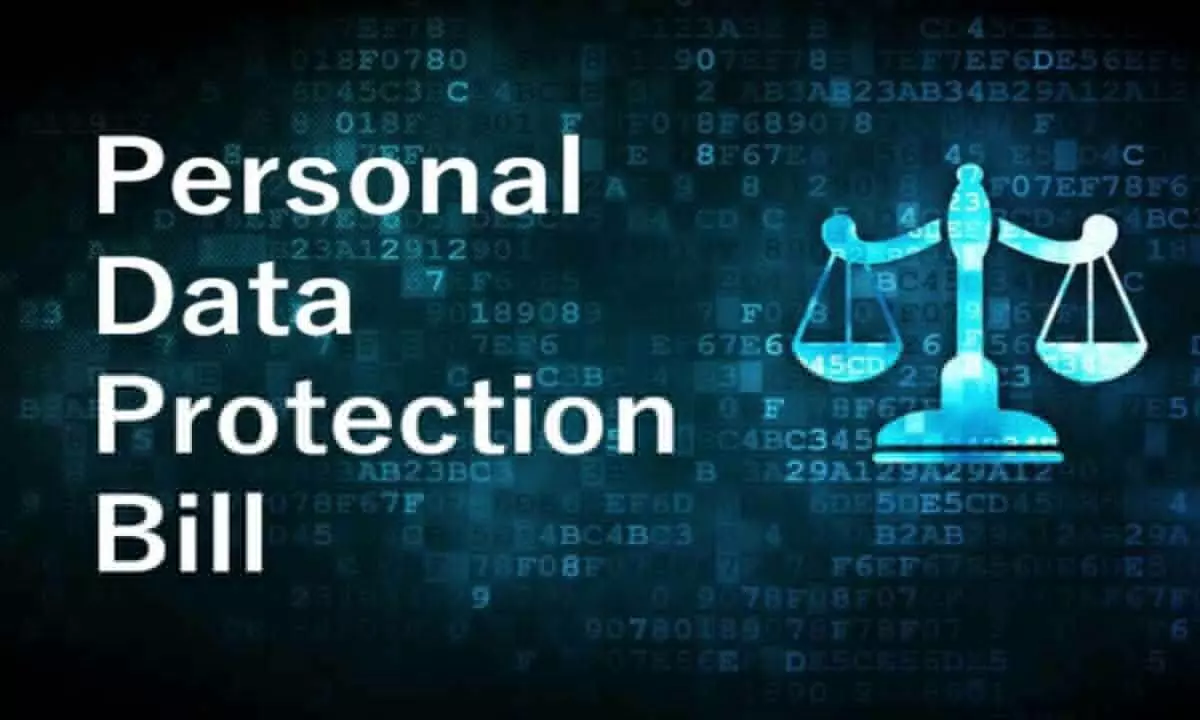‘Data protection bill not about censorship’
The move aims to drive deep behavioural changes for platforms exploiting data: MoS for IT
image for illustrative purpose

New Delhi: The upcoming Digital Personal Data Protection Bill will drive deep behavioural changes among those platforms in India that have for long exploited or misused personal data, Union minister Rajeev Chandrasekhar asserted.
In an interview, the Minister of State for IT and Electronics also sought to allay concerns around the issue of government-appointed fact check body, saying the move is not about censorship at all, rather it gives the Centre an opportunity to clarify and respond to any misinformation related to it, something that is critical in a democracy. Misinformation, he said, is not to be confused with right to free speech.
The Minister noted that misinformation tends to travel 10-15 times faster, and reaches an audience 20-50 times more, than truth. He emphasised that it is absolutely critical that in a democracy if someone says something false about the government, to create hatred, to incite violence, or to just create mistrust, the government must have an opportunity to say no, this is not true.
“So there is no censorship, there no restriction on free speech. This is simply about saying what is patently false, is patently false. And that is certainly not to be confused or deliberately distorted to imply that this is a crackdown on free speech,” Chandrasekhar said.
The Minister’s comment assumes significance as the decision to notify an entity that will flag false information posted online pertaining to the government has raised concerns in some quarters on whether it gives government absolute powers.
“I think there is some misunderstanding about what it is we are trying to do,” the Minister said when asked about the issue.
“Misinformation is expressly an area that has already been prescribed in the rules as an area that platforms have to do significant work in moderating misinformation if they are to enjoy Section 79 protection. It is already mandated in the rules of October 2022,” he said.
Rather, the fact check unit aims to help platforms in identifying false content posted about the government. “It is not an opinion. It is not about saying that we will create another narrative about the government,” Chandrasekhar added.
On the digital personal data protection (DPDP) bill, which will be introduced in the coming session of Parliament, the Minister said the draft legislation has undergone a lot of consultation and is designed as “a truly world class piece of legislation.”
“I have absolutely no doubt that the DPDP Bill will create deep behavioural changes among platforms in India who have for long exploited and misused personal data,” the minister said. At the same time, those who have played fair will not get affected, and will continue to do the right thing, he observed.
"Those who have done it (misused data), tracked consumers, used cookies they certainly will have to go through deep behavioural change? Those who are already doing it right, have nothing to fear. But those who have, in a sense, lived off this model of exploitation will certainly have to reconsider," Minister said. He expressed hope that the bill will come up in the Monsoon session of Parliament.
The draft bill - which has seen an overhaul after its withdrawal in August last year - details the citizen's rights on personal data, with provisions that makes entities handling personal data accountable for managing it with safety and security in a responsible manner.
"The purpose of this bill is to provide for the processing of digital personal data in a manner that recognises the right of individuals to protect their personal data, the need to process personal data for lawful purposes and for other incidental purposes," an explanatory note of the draft bill said. The proposed data protection legislation allows the transfer and storage of personal data in some countries while raising the penalty for violations. It stipulates consent before collecting personal data and provides for stiff penalties of as much as Rs 500 crore on persons and companies that fail to prevent data breaches including accidental disclosures, sharing, altering or destroying personal data.

